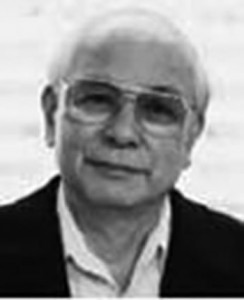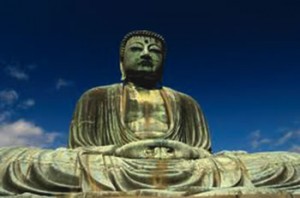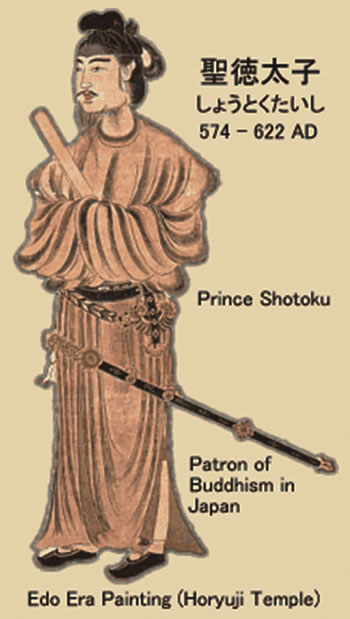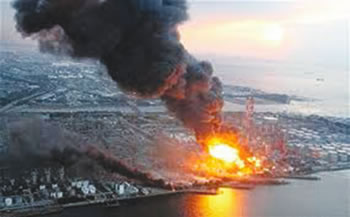These Japanese who know nothing about religion
by Otohiko Kaga
In my opinion, in post- earthquake Japan, religion has a role to play, and a duty to fulfil.
The change in civilisation which has come about since the Meiji era (i.e.1868) was significant in the domain of science and technology, but had no effect on religion. When the Japanese tried to understand European civilisation, very few of them tried to understand Christianity. In the same way, after the war (1939-1945), many young people went to study in Europe and America, with the aim of gaining knowledge in scientific and economic disciplines. They became familiar with literary works, but without taking any interest in their Christian background.
Many parents want to send their children to Christian schools, but are not concerned that they learn precisely what Christianity is. I wonder if it is rather because the ‘mission schools’ have a certain Western something which it would be really wise to come in contact with. After the war, in the teaching provided by the public schools, in conformity with the Constitution ( 1946 ), religious education was suppressed. Because the Constitution guarantees religious freedom, it is forbidden to impose any religion. In the ‘mission schools’, no doubt, Christianity is discussed, and the same would apply in universities of Buddhist allegiance, but these would add up to only a very limited number of establishments.
Japanese Christians number only about 0.75 % of the whole population, while in the neighbouring country, South Korea, Christians, Catholic and Protestant, are about 30%, and the Buddhists roughly 20%, so that one in two Koreans has a religion of one sort or another.
In Japan, Buddhist temples and Shinto sanctuaries are seen everywhere. People celebrate funerals and visit the cemeteries. The ceremonies of the feast of the dead are observed in August, and people happily make pilgrimages to the temples on New Year’s day, but the Japanese do not know their own country’s great spiritual masters.
A Past distinguished by the close links between literature and religion
By surveying the course of history, it can be seen that Japan really adopted Buddhism, while making it its own, thanks to its relations with China. The Senzuishi and Kentoshi embassies sent to the continent between the seventh and ninth centuries came back to Japan, bringing the riches of Chinese culture. Since the time of Shotoku Taishi, Buddhism has experienced an impressive development. Without reference to Buddhism, nothing can be understood of the classics of Japanese literature: viz “The story of Genji” or “The story of the Heike”, or even “The collection of stories of yesterday and today.” In former times, literature and religion were closely linked.
The main difference between the cultural renewal of the Meiji era and that which took place at the time when Buddhism came to Japan arises from the fact that the Japanese of those times were really interested in religion and made efforts to adopt the one that came from abroad.
It was Shotoku Taishi who had the colossal statue of Buddha erected at Nara, a statue which many students still visit as part of their end-of-studies tour. At that time many people were dying, victims of earthquakes, famines and epidemics. Shotokutaishi was looking for a way to save his people: “Of course good government is necessary, but I must recognise my weakness. People describe me as a great prince, but I do not possess the virtue which would deserve that title. I have no strength, I cannot save my people.” It was because he realised his powerlessness that Shotokutaishi prayed, relying on the power of Buddha to save his subjects.
I think that the Japan of that time was a bit like that of today. Even as he shows he has great strength, man cannot rival that of nature. And that was the reason that the Japanese became interested in Buddhism. Already, beforehand, Japan was the country of Shintoism, the way of the gods. The same desire can be found there. When man’s efforts are fruitless, he entrusts them to the divinity in prayer. Afterwards, the warrior class took over power, but the holders of authority always had their protecting gods. In feudal times the lords did not fail to pray before setting out on expeditions. In the matter of prayer, I believe, the Japanese were a very religious people. I have the impression that during the last sixty years they have deliberately stopped being interested in religion.
Strength of Science and strength of Religion
In these times, when many people are suffering the effects of the great tsunami and the nuclear accident, people hear, ceaselessly resounding, calls to get into action. While in other countries another voice is heard. An invitation to prayer: “Let us pray for Japan.”
Of course Japan, herself the victim in this drama, cannot excuse herself from considerable effort. There are, probably, times when appeals aimed at arousing everyone’s courage are necessary. But if, leaving aside the desire to pray, people rely on strength alone to triumph, it seems to me that the chances of success in rebuilding after the disaster are badly compromised.
From the start, wasn’t it because people thought they could control the nuclear power stations, thanks to human effort and mastery of science, that we got to the present situation? People thought that by building nuclear power-plants they would be able to produce electricity, develop industry, sell its products to the whole world, and so develop a rich country. Everything for money. Money, which it seems has been venerated like a god.... But in reality, I believe, such veneration leads to wretched poverty, and is a contemptible ideology. No room here for modesty, no time for preserving the taste for prayer.
I believe that the failure experienced by those who claimed mastery over nuclear power will have shown clearly how dangerous is a claim like this in a country like Japan, always exposed to the risk of earthquakes, floods and tsunamis. Nevertheless there are still many supporters of relying on nuclear energy. Without nuclear power, no prosperity for Japan, without electricity Japan will die, many people seem to think. Is this really true? Is that the ideal for a “rich country”?
The need to become aware of our weakness
Right now it is seen as obvious that the Japanese, being one of the most developed peoples on the planet, are going o be able to rebuild, thanks to their technological resources and the efforts they will make. Everywhere in the country you see posters bearing exhortations: “Japan, stand fast!” The government is setting up a budget planning for the spending needed for reconstruction. I have no argument with that, which is quite in order, but I am worried: isn’t this the same proud attitude – relying on our own strength- showing itself again?
I believe we need to rediscover humility: our strength is limited.
Let us become aware of that. Man can fight with all his strength to resist, but it’s not enough. He must know how to resort to prayer to receive the superior strength which comes from on high. And in the same way, one cannot support those who tend to expect the government to do everything needed to solve problems, while at the same time asking it for money. We must also pray. We must personally help other people. The great earthquake in the North-East, the huge tsunami and the accident at the Fukushima nuclear power plant are historical tragedies. The Japanese people must conscientiously remedy the effects of these tragedies. It is a terrible trial for Japan and the world. I believe we have to confront this trial, well aware that if we make a wrong solution, Japan will be condemned to perish.
It seems that there are 54 nuclear power stations in Japan. I think they ought to be withdrawn from service, one by one, and a temple built on the site of the dismantled buildings, and the nuclear reactor changed into a funeral chapel. It would be like a legacy left to future generations, a sign showing the bitter regret and the repentance of men who put to the use of their businesses an atomic energy which they are incapable of controlling. A symbol for the twenty-first century.
Otohiko Kaga (1929 - ) is a leading Japanese novelist, and a convert to Catholicism. What is written above is extracted from an essay entitled “Science, religion and death” published in Japan in 2012. A French translation was published in “Missions Etrangeres de Paris” November 2012, and this was re-translated into English by Brian Quin s.m.




 Entries(RSS)
Entries(RSS)